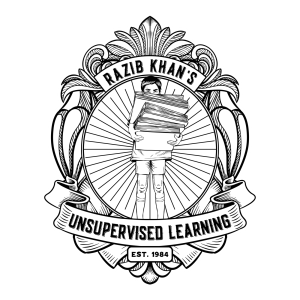
Razib Khan's Unsupervised Learning
Science:Life Sciences

Over the past generation, China has gone from a developing nation of bicycles and Volkswagens to a global economic juggernaut that is Mercedes-Benz’s single biggest market. You can track this transformation in charts or follow it in dispatches from foreign correspondents, but this week’s guest on the podcast has seen it up close and personal. Colin is a black American who works in the corporate technology sector and has lived in and visited China on and off since the late 1990’s. He is also a genetic genealogy enthusiast, so he and Razib have known each other for over ten years as the field of DNA-informed family and ancestral personal history has grown to become ubiquitous.
First, Colin talks about the changes he’s seen first hand, in particular in Shanghai. What today is a gleaming international capital of finance and commerce, just a generation ago it was a parochial burg, where many residents still spoke the local dialect in public and walked the flooded streets in their pajamas. Colin contrasts the sheer rapidity of change in and around Shanghai, with his experiences traveling to Europe: while he does not have to update his “mental map” of Paris or London when years pass between visits, Chinese cities are constantly shifting, transmuting and growing. He notes that while the Chinese of a generation ago were curious and diffident, today they tend to be self-assured and confident about their place in the world.
Then they discuss the peculiarity of Colin’s position of being both a Westerner and black, and how reactions to this juxtaposition have changed over the last generation. Whereas in the 1990’s, being Western and white were seen as proxies for each other, and his black racial identity presented his interlocutors with a conundrum, today’s Chinese are much more aware and sophisticated about the world beyond their borders. Colin also addresses the idea that the Chinese are prejudiced against darker-skinned people. Though this is true, he attributes this as much to their ideas of class as to anything biological. Colin points out that the Chinese perceive majority-white Western nations to be developed and orderly, while South Asia and Africa are perceived to be undeveloped and chaotic. The national associations transfer over to race and easily map onto traditional Chinese notions, where uneducated rural peasants who spend their days laboring outside are darker-skinned, as opposed to fair-skinned scholars.
For a nominally “Communist” nation, Colin argues that China is riven by massive visible class divisions. Until the late crackdown by Xi Jinping, the Chinese nouveaux riches flaunted their wealth in a gaudy manner that would take most Westerners by surprise. While some of the wealthy living in Western nations are relatively understated in their consumption, the Chinese rich display their material riches so as to signal their success and status.
Finally, Razib and Colin discuss the place of religion in the People’s Republic of China today. This seems a case where everything new is old, as the traditional Chinese suspicion of “foreign religions,” in this case, Islam and Christianity, is contrasted with the relative indulgence shown to native religious practices, including Buddhism and Daoism. While the Western press is often fixated on the vocal and well-connected Christian minority, Colin’s experience is that the average Chinese is very weakly engaged with organized religion, if at all, as the nation’s history would lead you to expect.
More Episodes
 2023-12-05
2023-12-05
 2023-11-29
2023-11-29
 2023-09-24
2023-09-24
 2023-09-15
2023-09-15
 2023-09-13
2023-09-13
 2023-09-12
2023-09-12
Create your
podcast in
minutes
- Full-featured podcast site
- Unlimited storage and bandwidth
- Comprehensive podcast stats
- Distribute to Apple Podcasts, Spotify, and more
- Make money with your podcast
It is Free
- Privacy Policy
- Cookie Policy
- Terms of Use
- Consent Preferences
- Copyright © 2015-2024 Podbean.com





